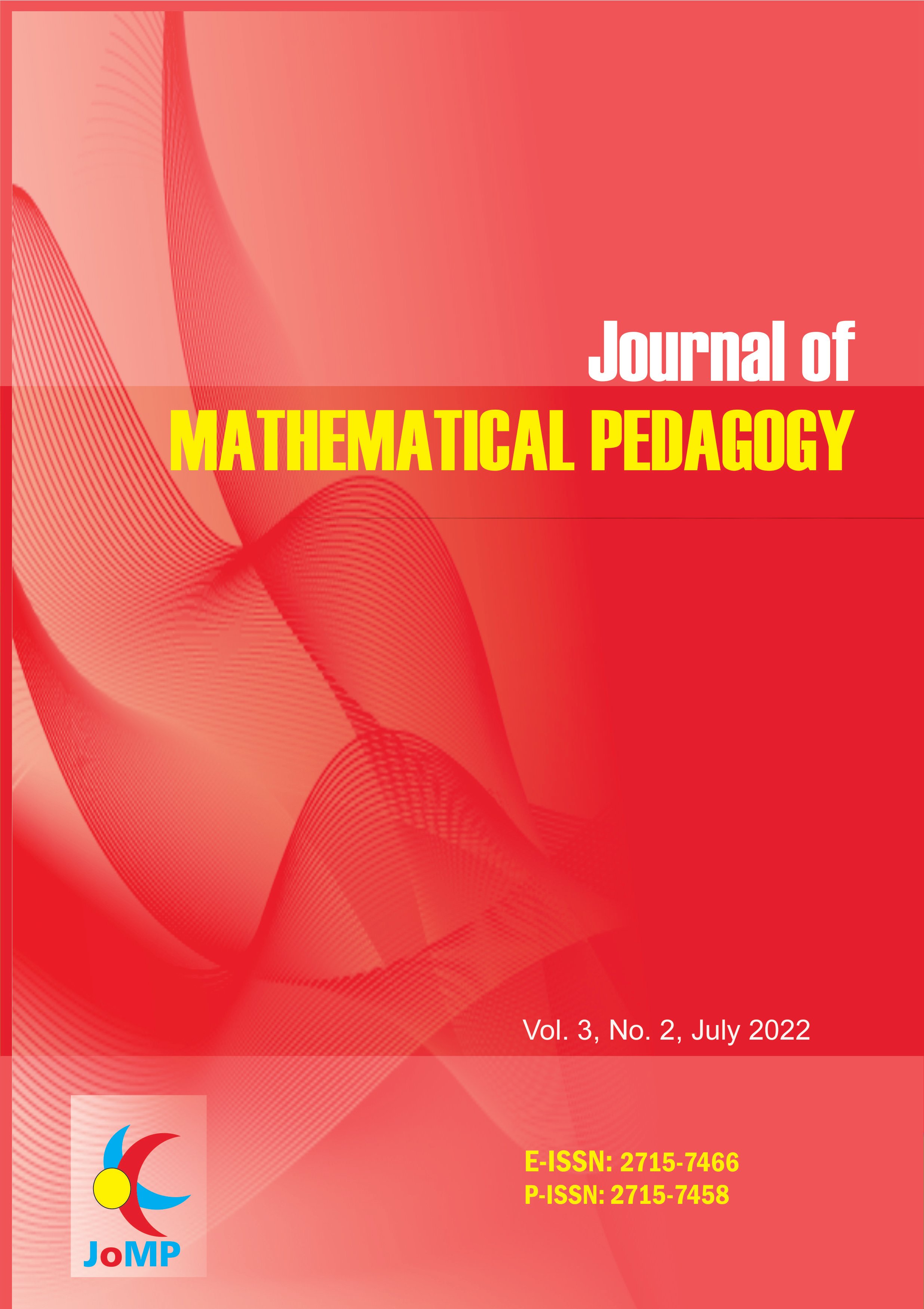Scaffolding to Help Middle School Students' Critical Thinking Skill in Solving Social Arithmetic Material
DOI:
https://doi.org/10.26740/jomp.v3n2.p55-67Keywords:
Scaffolding, Critical thinking, Social ArithmeticAbstract
Junior high school students in completing social arithmetic material often fail to think critically, so they need help using scaffolding to help critical thinking skill. This qualitative research is a case study of two junior high school students who failed to think critically. Data were obtained through task-based interviews. The tests used in this study were 2 social arithmetic questions that required students' critical thinking skills in solving them. Data analysis used the flow model analysis technique developed by Miles and Huberman (2014) which consisted of data collection, data reduction, data presentation, and drawing conclusions. The researcher uses research diligence to ensure the credibility of the data. The results of this study indicate that Subject 1's critical thinking failure lies in the components of interpretation, and inference. Subject 2 failed to think critically on the components of interpretation, analysis, evaluation, inference, and explanation. The scaffolding given to overcome the failure of critical thinking in subject 1 and subject 2 is the Anghileri’s level 2 scaffolding, namely explaining, reviewing, and restructuring.
References
Arifin, S., Zulkardi, Putri, R. I. I., Hartono, Y., & Susanti, E. (2020). Scaffolding in mathematical problem-solving. Journal of Physics: Conference Series, 1480(1). https://doi.org/10.1088/1742-6596/1480/1/012054
Asfar, A. M. I. A., Ahmad, M. A., & Asdar, A. M. I. T. (2021). Elaboration of Active Knowledge Sharing Learning Model to Improve High Order Thinking Skills Integrated 4C. Asian Journal of Applied Sciences, 9(4), 260-266.
Belland, B. R. (2017). Instructional Scaffolding in STEM Education. Utah State University. https://doi.org/10.1007/978-3-319-02565-0
Dale, A. (2020). Using A Metacognition Scaffold to Improve Student Critical Thinking: A Qualitative Single Case Study of a Grade Twelve English Class. In ProQuest LLC (Vol. 8, Issue 75). Northcentral University.
Hamidah, S. D., Shodikin, A., & Amiroch, S. (2019). Kesulitan Siswa dalam Menyelesaikan Masalah Penjumlahan dan Pengurangan dengan Metode Jarimatika dan Pemberian Scaffoldingnya. Inspiramatika, 5(2), 72-85. https://doi.org/10.52166/inspiramatika.v5i2.1752
Khotimah, K., Shodikin, A., & Asmana, A. T. (2021). Meningkatkan Kemampuan Berpikir Kritis dan Kemandirian Belajar Siswa Melalui Pembelajaran Berbasis Masalah. Inspiramatika, 7(2), 88-101. https://doi.org/10.52166/inspiramatika.v7i2.2752
Miles, M. B., Huberman, A. michael, & Saldana, J. (2014). qualitative data analysis (H. Salmon, K. Perry, K. Koscielak, & L. Barrett (eds.); third edit). SAGE publications.
Rukminingsih, Wardhono, A., & Rohmawati, P. (2020). Metode Praktis Penelitian Pendidikan (M. Syaifuddin (ed.)). Erhaka Utama.
Sapta, A., Pakpahan, S. P., & Sirait, S. (2019). Using the problem posing learning model based on open ended to improve mathematical critical thinking ability. Journal of Research in Mathematics Trends and Technology, 1(1), 12-15.
Siswono, T. Y. E. (2010). Penelitian Pendidikan Matematika. Unesa University Press.
Zheng, L., Li, X., Zhang, X., & Sun, W. (2019). The effects of group metacognitive scaffolding on group metacognitive behaviors, group performance, and cognitive load in computer-supported collaborative learning. The Internet and Higher Education, 42. https://doi.org/10.1016/j.iheduc.2019.03.002
 Abstract views: 234
,
Abstract views: 234
, PDF Downloads: 319
PDF Downloads: 319





